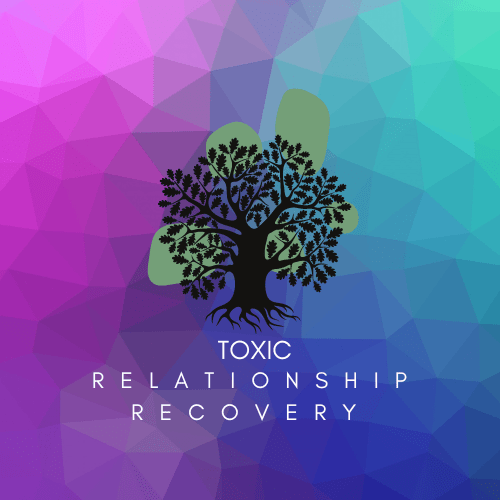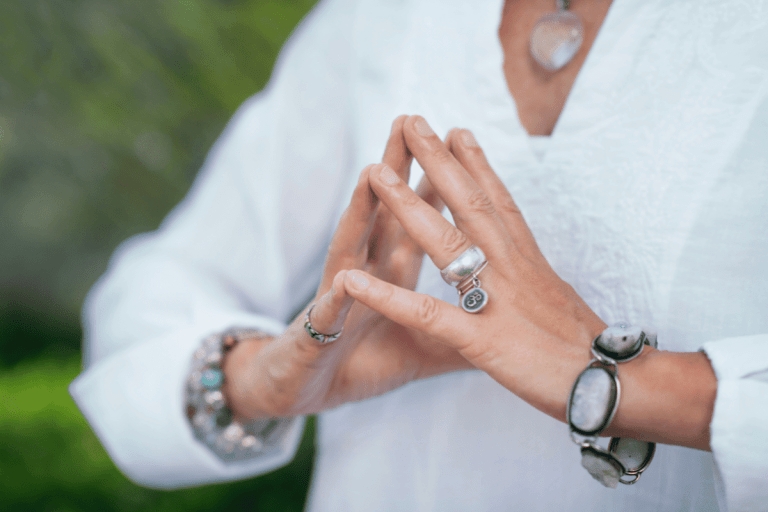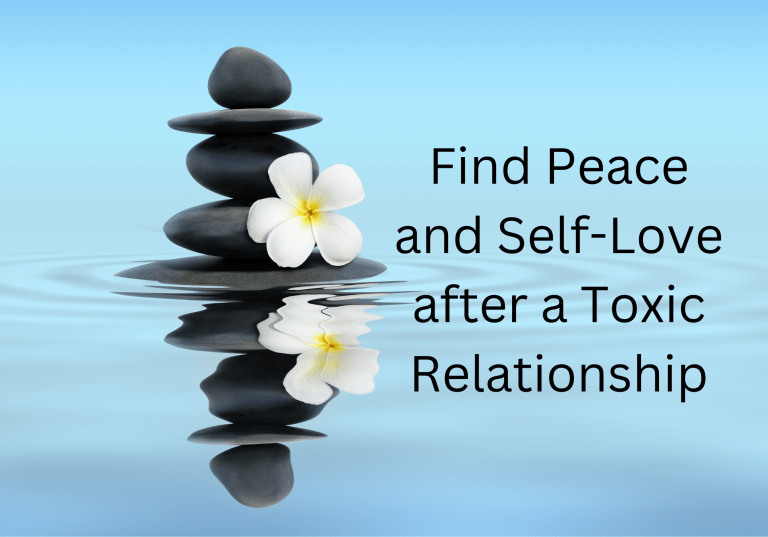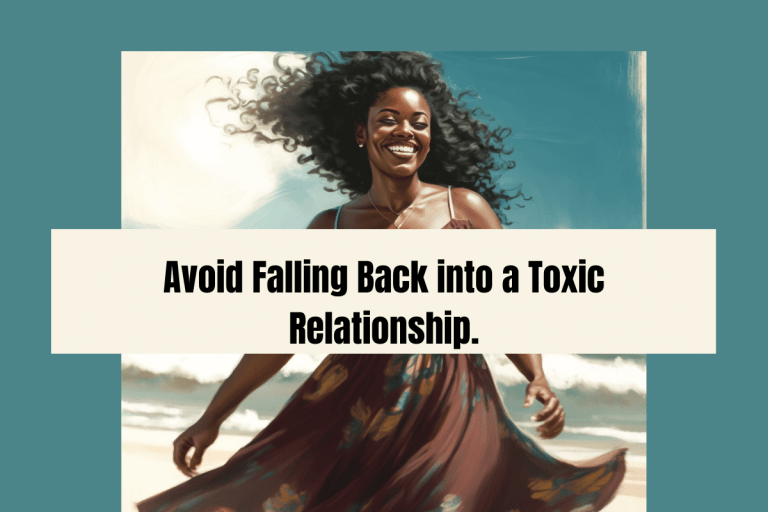Why the narcissist ex wants to remain friends
Table of Contents
Have you ever wondered why your narcissist ex wants to remain friends, even after the toxic relationship is over?
You may be wondering what the late-night texts or the occasional coffee meet-up requests are all about.
There’s often a subtle power play that’s classic of a narcissistic ex.
Imagine your past relationship as a play where the narcissist always needed to be the center of attention. Even after the curtains close on your romantic partnership, they crave the applause, or in real-world terms, your undivided attention and admiration.

They view people, including you, as valuable resources to feed their sense of superiority.
You are narcissistic supply and staying connected to a narcissist ex can sometimes be more about their selfish reasons than the sentimental value of the good times you shared.
Whether it’s for maintaining peace of mind or seeking new, healthy relationships, understanding the real truth behind why your narcissist ex wants to remain friends is the first step toward regaining control of your life and happiness.
1. The Narcissist’s Worldview
Step into the shoes of someone with a narcissistic personality for a moment. It’s a place where the world revolves around them and their needs.
Now, you might remember your narcissist ex as someone who could light up the room, drawing people in like moths to a flame.
But what happens when the party’s over and everyone goes home? For someone with narcissistic traits, that’s when things get tricky.
You see, for your former partner, romantic relationships are like mirrors—they need to reflect their own greatness back at them. This is what experts often refer to as ‘narcissistic supply.’
It’s not just about being admired; it’s about feeling superior. They collect friends and romantic partners like trophies, boasting their collection to anyone who’ll pay attention.
But beneath this need for adulation lies a startling lack of empathy. It’s hard for them to step into your shoes and see the world from your perspective.
Their sense of self is inflated, like a balloon ready to pop at the slightest prick of criticism. And you, being the caring human being that you are, might have tried to patch things up, not realizing that it’s not your job to keep inflating their ego.
Oakland University, along with other institutions, may have produced studies on this, but you don’t need a new study to tell you what you’ve experienced first-hand.
The narcissist person you knew was likely more interested in maintaining the appearance of having good friends than actually being one.
Now, think back to the times you felt you were being used for their own needs—were those good times really genuine?
Or were they just dark personality traits and carefully calculated moves in their social chess game?
It’s important to reflect on this because it sheds light on why they might still want to keep you around.
As we move forward, recognizing these traits is not about labeling someone as a ‘bad person.’ It’s about understanding the dynamics at play so you can navigate your post-relationship landscape in the best way possible—for you by understanding why your narcissistic ex wants to remain friends.

2. The Allure of Remaining Friends
Your relationship with your narcissist ex has ended, but they’re knocking at the door, asking you to stay on as friends. Why?
Do they show genuine interest in your life, or is their ‘concern’ only shown when they need something from you? A true friend values your well-being and happiness.
Because for them, friendship is not just about sharing laughs and making memories—it’s a chessboard for a power play. It’s their way of keeping a foot in the door, a strategic move cloaked in friendly banter.
Your narcissist ex thrives on narcissistic supply—the attention and admiration that you, as a former romantic partner, uniquely provide.
When the intimate relationship ends, they may not be ready to give up this supply. By remaining friends, they keep their access to it, ensuring they can still bask in the glow of your regard and the social prestige of having you in their social circle.
It’s not just about preserving the good times for them. Maintaining a friendship can be a narcissist’s way of continuing their subtle control over you. It’s a sad truth, but it’s about meeting their own needs, not yours.
They might use your shared history or intimate knowledge as emotional leverage, ensuring you’re always within reach for their ego’s sake.
They might demand special treatment under the guise of friendship, expecting you to prioritize their needs as you might have during the relationship.

They often lack empathy; they may not recognize or care about the emotional toll this takes on you.
The times they wanted to be good friends, was it a genuine connection or a strategic reason to keep you around?
Did they ever go to great lengths to understand your needs, or was it a one-sided affair where your role was to prop them up?
It’s important to determine whether this friendship is for your well-being or if it’s a narcissistic ploy that can lead to more heartache and confusion.
As you reflect on these points, consider the true cost of this continued connection.
Is it time to redefine the terms of your relationship with your narcissist ex, or is it healthier to close that chapter and move on?
3. The Benefits to the Narcissist
Let’s shift the focus back to your narcissist ex for a moment. By insisting on a friendship after the romance has ended, they’re not just clinging to old memories. It’s a calculated decision with benefits that serve their ego and agenda.
You’ve been a valuable resource, and in the economy of a narcissist’s needs, that’s currency too precious to lose.
Your friendship offers them several advantages.
3.1 Narcissistic supply
For starters, it keeps their narcissistic supply well-stocked. Your attention, your care, even your occasional frustration—each reaction from you is a little hit of that supply, fueling their sense of importance.
3.2 Power and Control
It’s also about power. By remaining friends, they retain a sense of control over you. Think of it as a power play. They can dip in and out of your life, often at moments that are inconvenient or upsetting for you, just to remind you—and themselves—of the control they still wield.
3.3 Familiarity
And then there’s the safety net aspect. You’re familiar. You know their history, their likes and dislikes, and, most importantly, you’ve seen them at their most vulnerable.
3.4 Backup Plan
In the world of narcissistic relationships, this makes you a prime candidate for a backup plan. Should new sources of supply dry up, they know they can turn to you for an ego boost.

3.5 Maintenance of the Facade
But let’s not overlook the subtler, more insidious benefit: maintaining a facade. To the outside world and their own fragile ego, a friendship with an ex is proof of their ‘good guy’ image.
It’s evidence that they’re so charming and lovable that even their exes can’t bear to cut ties. It’s a way to garner social proof and admiration—a testament to their allure and a way to attract new potential partners.
This isn’t about a healthy post-relationship friendship where mutual respect and genuine fondness govern the connection.
This is a narcissist’s way of keeping you close for strategic reasons—reasons that ultimately serve their self-interest, not your emotional well-being.
4. Why a narcissistic ex wants to be friends
It’s essential to recognize the signs that maintaining a friendship with your narcissistic ex may not be in your best interest.
I believe that the reasons why you are valued more for the narcissistic supply you provide than for yourself are:
4.1 Consistent Self-Centeredness
Does the conversation always revolve around them? A friendship should be a two-way street, not a monologue about their life and achievements.
4.2 Manipulation Tactics
Watch out for guilt trips or flattery used to sway your decisions or to keep you engaged. These are tools in the narcissist’s arsenal to maintain a hold over you.
4.3 Lack of Reciprocity
Do they show genuine interest in your life, or is their ‘concern’ only shown when they need something from you? A true friend values your well-being and happiness.
4.4 Emotional Leverage
Reflect on whether they use intimate knowledge from your past relationship to push your buttons or to gain a psychological advantage.
4.5 Boundary Testing
A narcissist often tests your limits. Do they respect your boundaries, or do they repeatedly push past them, disregarding your comfort or wishes?
4.6 Gaslighting
Are there moments when they make you question your own reality or feelings? It’s a common tactic used by narcissists to undermine your sense of self.
4.7 Keeping Tabs on You
Be cautious if they seem overly interested in your current dating life or personal affairs. It’s often not about friendship but about maintaining control and gathering information.
4.8 Disregarding Your Growth
A narcissist may downplay your achievements or new relationships. They often prefer you in a role that’s beneficial to them, not one where you thrive independently.
Now, with these points in mind, let’s consider what a healthy friendship should look like:
Mutual Respect: A good friend honors your feelings, thoughts, and boundaries.
Supportive Interactions: They cheer for your successes and support you through challenges, without making it about themselves.
Balanced Exchange: You should feel free to share about your life without worry of being overshadowed or used.
If you’re finding that your ‘friendship’ with your narcissist ex is lacking in these positive traits, it’s a sign to reevaluate the friendship. The sentimental value you place on past good times should not come at the expense of your current and future happiness.
This self-assessment isn’t about assigning blame or living in the past. It’s about ensuring that your social circle today is composed of good friends who have your best interest at heart.
It’s about healthy relationships that allow you to grow as an individual, not ones that leave you feeling stuck or exploited.

5. The Impact on You
It’s time to examine the impact that maintaining a friendship with your narcissist ex can have on your life.
Your well-being is paramount, and recognizing how this relationship affects you is key to making informed decisions about friendship with your narcissistic ex.
Consider these points to understand the personal cost:
5.1 Emotional Drain
Do you often feel emotionally exhausted after interactions? A friendship with a narcissist can be like a one-way emotional faucet, with your energy constantly flowing out and none coming back in.
5.2 Impact on Self-Esteem
Gauge how you feel about yourself in their presence. A toxic friendship can erode your self-esteem, making you feel less than you are.
5.3 Influence on Other Relationships
Notice if your connection with them is causing rifts in other relationships. Narcissists often aim to be the center of attention, which can disrupt your other social ties.
5.4 Personal Growth
Assess whether this friendship is holding you back from exploring new opportunities or stifling your growth as a person.
If these points ring true, it might be time to consider setting boundaries or even parting ways.
6. Practical Advice
Here’s some practical advice to start with that I found most helpful:
6.1 Define Your Boundaries
Clearly outline what you are and aren’t willing to tolerate. This clarity will help guard your sense of self. It will also help you to be able to communicate your boundaries if they are clearly defined in your mind.
6.2 Practice Saying No
It’s okay to refuse favors or decline invitations that don’t serve your best interests. Saying no is not selfish.
If your boundaries are clearly defined you will find it easier to say no when something does not serve you.
6.3 Seek Support
Talk to family members, good friends, or professionals who can offer perspective and support. Don’t feel ashamed about sharing your story and experience with your narcissistic ex.
Reaching out to family and friends for support is a good starting point for rebuilding your life.
6.4 Focus on Your Needs
Prioritize your own needs and well-being. Remember, it’s not selfish to take care of yourself.
After a toxic relationship, self-care is very important. It allows you to boost your health and energy levels and this in turn helps with your self-esteem.
6.5 Reflect on Your Values
Align your friendships with your core values. Are your interactions with your narcissist ex in harmony with those values?
Taking these steps can be hard, especially if there’s a long history or if your narcissist ex is a master at playing on your vulnerabilities.
However, believe me, it is worth the effort.

7. Moving Forward from a friendship with a narcissist ex
It’s time to look ahead. Staying friends with a narcissist ex might seem like the only way to maintain peace or hold onto the past, but it is time to consider your future.
Think about the new life awaiting you, one where you’re free from the toxic cycle of narcissistic abuse.
Here’s how you can start moving forward:
7.1 Acknowledge Your Feelings
It’s normal to have mixed emotions. Acknowledge them, but don’t let them dictate your actions.
Healing is not a linear process and you will have good days and bad days and that is okay. Have patience with yourself.
7.2 Reclaim Your Story
Take back the pen and rewrite your narrative, this time with you as the protagonist, not just a supporting character in your ex’s drama.
What do you want in life?
7.3 Build New Connections
Surround yourself with people who uplift you. Healthy relationships are out there, and they can offer a reciprocal and rewarding friendship.
7.4 Discover Your Interests
Dive into activities that interest you. This can be a powerful way to rediscover your identity outside of the relationship.
What excites you? If at first you don’t know the answer that is also okay. Try different things until you begin to find yourself.
7.5 Celebrate Your Independence
Every decision you make for yourself is a step toward independence. Celebrate these milestones, no matter how small.
And as you pave your path away from the narcissistic influence, be mindful of these potential challenges:
- The Lure of the Familiar: It’s tempting to go back to what’s familiar but remember, familiar doesn’t always mean healthy.
- Flying Monkeys: Be wary of mutual friends who may unwittingly act as the narcissist’s envoys. Set clear boundaries with them as well.
- Sense of Power: Your narcissist ex might try to regain power over you. Stand firm in your resolve and remember why you’re moving on.
Moving on doesn’t mean you have to do it alone. Reach out for support from trusted friends, family, or professionals.
Consider joining a support group or engaging in a free program for people recovering from relationships filled with narcissistic abuse.
There’s strength in community, and there’s wisdom in the experiences of others who’ve walked this path before you.

Frequently Asked Questions
1. What does it mean if my narcissist ex wants to stay friends?
It means they might see you as a source of narcissistic supply. They could be looking to maintain a sense of control, keep you as a safety net, or simply enjoy the benefits of your attention and support without committing to a real friendship.
2. How can I tell if my friendship with my narcissist ex is unhealthy?
Reflect on your feelings after interactions. Are you often emotionally drained? Do they respect your boundaries? If you find that the relationship is one-sided and your ex is using you for their own needs, it’s likely an unhealthy dynamic.
3. Is it a good idea to remain friends with a narcissist ex for the sake of peace?
While it might seem easier to maintain the status quo, it’s important to prioritize your own emotional well-being. Staying friends with a narcissist ex can often lead to more emotional turmoil and hinder your personal growth.
4. What should I do if I decide to end the friendship with my narcissist ex?
Set clear boundaries and communicate them assertively. It’s okay to be firm and direct. Prioritize your own needs and seek support from family and good friends. Your well-being is the most important.
5. Can a narcissist ex ever be a true friend?
It’s challenging for narcissists to engage in genuinely reciprocal relationships due to their lack of empathy and tendency to prioritize their own needs. While there are exceptions, it’s often difficult for a narcissist to maintain a healthy, balanced friendship.
6. How can I move on from a narcissistic relationship and rebuild my life?
Focus on your own growth and interests. Surround yourself with supportive people who value and respect you. Don’t hesitate to seek professional help if you’re having a hard time. Moving on is a process, and it’s okay to take it one step at a time.
Join our Facebook group
If you remain friends with a narcissist ex, remember that your experiences are valid and your feelings matter. It’s natural to question the past and to ponder the ‘what ifs,’ but the real truth lies in recognizing what serves your best interest.
Your narcissist ex might have painted a picture where they’re the misunderstood good guy, or perhaps they’ve cast themselves as a perpetual victim in need of your support.
These narratives are often just smoke and mirrors—a strategic reason to keep you close, not a reflection of your true worth or future potential.
Let’s take a moment to summarize the key points we’ve covered:
- Narcissists view relationships as sources of supply, and your friendship is no different.
- Staying friends may serve their ego, offer them control, and act as a safety net.
- Recognizing the red flags can protect your emotional well-being and self-esteem.
- Moving forward involves setting boundaries, building new relationships, and focusing on your growth.
If you ever find yourself looking back, remember how far you’ve come. You’ve navigated through the storm and emerged wiser, stronger, and more in tune with yourself. The next time you face a decision about who to let into your world, you’ll have the tools and the insight to choose those who uplift you, respect you, and honor the wonderful person you are.
Here’s to moving on, to new beginnings, and to a life where you are the architect of your own happiness. You’ve got this.






